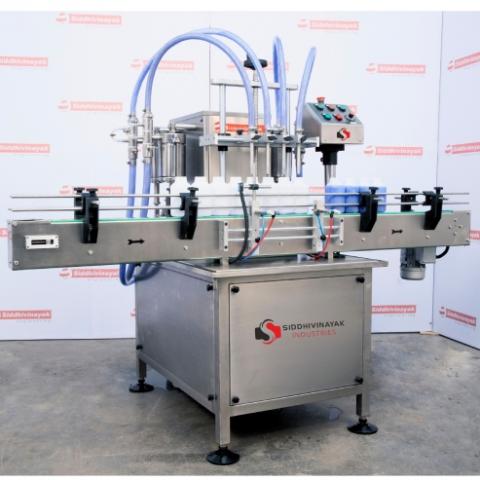Products Catalogs & Keywords:

Incepted in the year 2019, We Siddhivinayak Industries are one of the leading Automatic Liquid Filling Machine Manufacturer, suppliers and Exporters of a wide range of Automatic Filling Machine.
Liquid Filling Machines are manufactured to accurately and efficiently fill bottles, jars, tubes, and other containers with liquids. There are various types of liquid fillers that provide precision filling across many industries.
Some common liquid filling technologies include piston fillers, peristaltic pumps, time/pressure fillers, and mass flow metering. Each has advantages depending on the application requirements.
Piston fillers use reciprocating pumps to precisely measure and dispense the liquid. This volumetric method provides high accuracy and repeatability. Peristaltic pumps use compression rollers to pump fluid through tubing into containers. This provides gentle filling for shear sensitive products.
Time/pressure fillers regulate fill time and tank pressure to control fill volumes. Mass flow metering measures the precise flow rate and fluid density to dispense accurate fill amounts.
Liquid Fillers can be benchtop units for small batch production or inline systems integrated into automated production lines. They may be semi-automatic for an operator to load containers or fully automatic with conveyors to mechanize the entire filling process.
Advanced fillers offer features like vacuum filling, weight checking, reject systems, and clean-in-place capabilities. Parameter controls allow filling of a wide range of viscosities and container types.
Key factors when selecting a liquid filler include the container type and size, product viscosity and characteristics, required accuracy, and output volumes needed. The filling method must provide the gentleness, precision, and flexibility required for the specific application.
With automated operation, data collection, and recipe storage, modern liquid filling machines deliver accuracy, repeatability, and efficiency. They help manufacturers improve quality control, enhance productivity, and minimize waste.
